Why What Worked in Your 20s Doesn’t Work in Your 40s (And What To Do About It)
If you’re a woman in your 40s or 50s, you’ve probably said this before:
“What used to work for me in my 20s and 30s doesn’t work anymore…”
And you’re right. Despite all the diet books out there, most miss a key piece of the puzzle: your hormones.
Your body isn’t broken. It’s changing. Understanding how your hormones shift through puberty, perimenopause, and menopause is the missing link in why your old strategies no longer get the same results.
Let’s break this down.
What Are Hormones Anyway?
Hormones are chemical messengers. They carry instructions between your organs to keep your body balanced and functioning smoothly.
Every day, your hormones work together in a complex dance. But when they shift—or fall out of balance—your metabolism, mood, sleep, cravings, and even where you store fat are all affected.
Here’s how some key hormones regulate your weight:
Estrogen: The Shape-Shifter
Women actually have three types of estrogen:
-
Estradiol (E2): The dominant estrogen before menopause. It keeps metabolism humming, improves mood, sharpens memory, protects your bones, and helps you sleep. But it drops sharply in menopause, which can leave you feeling sluggish, foggy, and more prone to weight gain.
-
Estrone (E1): Becomes more dominant after menopause. Unfortunately, higher estrone levels are linked to slower metabolism, belly fat, and greater cancer risks.
-
Estriol (E3): The “weak” estrogen mostly produced in pregnancy. Lower estrogen in general also reduces deep, restorative sleep—making it harder to recover and maintain energy.
Progesterone: The Quiet Influencer
Progesterone prepares the body for pregnancy—even if you don’t get pregnant. Along the way, it causes:
-
Increased food cravings
-
Slower digestion (meaning extra calories absorbed)
-
Bloating
-
Loosening ligaments, which raises injury risks
When progesterone is out of balance, you may notice cycles of cravings and discomfort that sabotage your progress.
Testosterone: More Than Just a “Male” Hormone
Yes, women have testosterone too—just in smaller amounts. Levels decline by more than 50% during menopause, which leads to:
-
Loss of muscle mass
-
Lower bone density
-
Increased risk of depression
But too much testosterone relative to estrogen isn’t good either. It can cause:
-
Increased appetite
-
Belly fat gain
-
Restless sleep and even nightmares
Why Fat Goes Where It Goes
-
Higher testosterone compared to estrogen: fat tends to settle around your waist.
-
Higher estrogen compared to progesterone: fat builds around hips and lower tummy.
-
Any imbalance: weight gain becomes harder to control.
It’s not just calories in, calories out—it’s about hormone signals.
The Bottom Line
If you’ve been frustrated that your old diet and exercise tricks don’t work anymore, it’s not your fault. Hormonal shifts in your 40s and 50s change how your body stores fat, responds to food, and uses energy.
The good news? You can work with your hormones instead of against them.
Ready to rebalance your hormones and finally see results again?
When you sign up with me, I’ll help you understand your unique hormonal profile and guide you with strategies tailored to your body—so you can lose stubborn weight, boost energy, and feel like yourself again.

